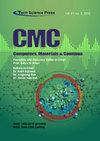基于人工智能的智慧城市健康危机管理情感分析
IF 1.7
4区 计算机科学
Q3 COMPUTER SCIENCE, INFORMATION SYSTEMS
引用次数: 6
摘要
智慧城市促进传统城市基础设施和信息技术(IT)的统一,以提高城市的生活质量和可持续的城市服务。为了实现这一目标,智慧城市需要公共和私营部门之间的合作,安装IT平台来收集和检查大量数据。与此同时,设计有效的基于人工智能(AI)的工具来处理智慧城市的医疗危机情况至关重要。为了在医疗危机时期向人们提供熟练的服务,当局需要更密切地关注他们。社交网络中的情感分析(SA)可以提供有关公众对政府行为的意见的有价值的信息。基于这一动机,本文提出了一种新的基于AI的智能城市医疗保健危机管理SA工具(isa - hcm)。AISA-HCM技术旨在确定人们在医疗危机时期(例如COVID-19)的情绪。提出的AISA-HCM技术涉及不同的操作,如预处理、特征提取和分类。此外,采用脑风暴优化(BSO)与深度信念网络(DBN),即BSODBN模型进行特征提取。利用极值学习机甲虫天线搜索(BAS-ELM)方法对情感进行分类。使用BSO和BAS算法可以有效地分别修改DBN和elm模型中涉及的参数。AISA-HCM技术的性能验证使用Twitter数据进行,并根据各种措施检查结果。实验结果表明,与目前最先进的SA方法相比,AISA-HCM技术的性能有所提高,其最大精密度为0.89,召回率为0.88,Fmeasure为0.89,准确率为0.94。©2022科技科学出版社。版权所有。本文章由计算机程序翻译,如有差异,请以英文原文为准。
Artificial Intelligence Based Sentiment Analysis for Health Crisis Management in Smart Cities
Smart city promotes the unification of conventional urban infrastructure and information technology (IT) to improve the quality of living and sustainable urban services in the city. To accomplish this, smart cities necessitate collaboration among the public as well as private sectors to install IT platforms to collect and examinemassive quantities of data. At the same time, it is essential to design effective artificial intelligence (AI) based tools to handle healthcare crisis situations in smart cities. To offer proficient services to people during healthcare crisis time, the authorities need to look closer towards them. Sentiment analysis (SA) in social networking can provide valuable information regarding public opinion towards government actions. With this motivation, this paper presents a new AI based SA tool for healthcare crisis management (AISA-HCM) in smart cities. The AISA-HCM technique aims to determine the emotions of the people during the healthcare crisis time, such as COVID-19. The proposed AISA-HCM technique involves distinct operations such as pre-processing, feature extraction, and classification. Besides, brain stormoptimization (BSO) with deep belief network (DBN), called BSODBN model is employed for feature extraction. Moreover, beetle antenna search with extreme learning machine (BAS-ELM) method was utilized for classifying the sentiments as to various classes. The use of BSO and BAS algorithms helps to effectively modify the parameters involved in the DBN andELMmodels respectively. The performance validation of the AISA-HCM technique takes place using Twitter data and the outcomes are examined with respect to various measures. The experimental outcomes highlighted the enhanced performance of the AISA-HCM technique over the recent state of art SA approaches with the maximum precision of 0.89, recall of 0.88, Fmeasure of 0.89, and accuracy of 0.94. © 2022 Tech Science Press. All rights reserved.
求助全文
通过发布文献求助,成功后即可免费获取论文全文。
去求助
来源期刊

Cmc-computers Materials & Continua
工程技术-材料科学:综合
CiteScore
5.30
自引率
19.40%
发文量
345
审稿时长
1 months
期刊介绍:
This journal publishes original research papers in the areas of computer networks, artificial intelligence, big data management, software engineering, multimedia, cyber security, internet of things, materials genome, integrated materials science, data analysis, modeling, and engineering of designing and manufacturing of modern functional and multifunctional materials.
Novel high performance computing methods, big data analysis, and artificial intelligence that advance material technologies are especially welcome.
 求助内容:
求助内容: 应助结果提醒方式:
应助结果提醒方式:


